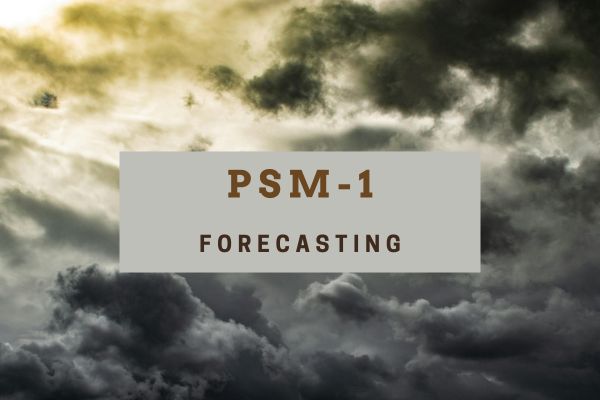
10 Class Meetings
Prerequisites: Must have completed the Natal Studies Module or have a solid understanding of natal chart interpretation, including planets, signs, houses, and aspects. Due to the amount of homework in this class, it is not recommended that you take another class with this one.
This course introduces transits, secondary progressions, and solar arc directions. Students will work with 3-case study events throughout each week to build a life theme. Students will also select a chart of their choosing for a final presentation that utilized these three forecasting methods.
Recommend Materials (available through the IAA online shopping areas):
- Identifying Planetary Triggers: Astrological Techniques for Prediction by Celeste Teal
- Progressions (Astrology: A Language of Life, Vol. 1) by Robert P. Blaschke
- Beyond Basics: Moving the Chart in Time by Carol A. Tebbs
- Astrology and the Authentic Self: Integrating Traditional and Modern Astrology to Uncover the Essence of the Birth Chart by Demetra George
- Predictive Astrology: The Eagle and the Lark by Bernadette Brady
- Beyond Basics: Tools for the Consulting Astrologer by Carol Tebbs
- Teacher: Enid Newberg
9 Class Meetings
Prerequisites: Completion of PSM-1 or knowledge of topics taught therein (Transits, Profections, Secondary Progressions, Solar Arc Directions)
This course explores Modern Astrology's timing techniques using Secondary Progressions, Solar Arcs & Transits and Classical Astrology's timing techniques using Profections & Transits.
Required materials:
The following required materials are available through the IAA online shopping areas:
- Beyond Basics: Tools for the Consulting Astrologer by Carol Tebbs
- The Art of Forecasting using Solar Returns by Anthony Louis
- Beyond Basics: Moving the Chart in Time by Carol A. Tebbs
- Progressions (Astrology: A Language of Life, Vol. 1) by Robert P. Blaschke
- Astrology and the Authentic Self: Integrating Traditional and Modern Astrology to Uncover the Essence of the Birth Chart by Demetra George
- Teacher: Samuel F. Reynolds
This course focuses on one of the things clients ask about most - relationships. We begin by exploring the potential relationship themes in the natal chart and then explore synastry between two charts, midpoint composites and Davison time-space composites. We also take a look at family and group dynamics.
- Teacher: Dorothy Oja
Prerequisites: This course is mandatory to graduate in the Diploma Module for the Professional Training Department. All obligatory courses must be completed satisfactorily.
Ethics and ethical habits are an integral part of any professional practice, including astrology. In fact, we could say that one cannot be a professional without adhering to ethical standards. The two go hand in glove.
This course is geared for astrologers in all phases and types of practice, whether they are students, consult with clients, are research astrologers, astrological writers, administrators, attend conferences, participate in collegial relationships, or talk to the public about astrology.
Every profession has unique situations pertaining to the nature of its business and practice, but there is a basic foundation of ethical adherence that is common to all professions. A complete course in Ethics for astrologers requires critical thinking and a willingness to successfully dismantle complex ethical dilemmas that will inevitably arise in the course of your astrological journey or career.
The course is divided into two main parts:
1. A review of various codes of ethics from some of the major astrological organizations to determine the common denominators among the various codes.
2. Application of ethical practice for astrologers. We will define the core ethical principles and seek to understand the situations and ethical dilemmas that might arise.
Required Class Reference Materials:
* Two Articles written by Dorothy Oja for The Mountain Astrologerin 1993/1994.
* Various articles (PDF files available through the Moodle website).
* A variety of Ethics Codes (sent to students before classier available on the Moodle website)
* Article for students to order from The Mountain Astrologer
- Teacher: Dorothy Oja
6 Class Meetings
Prerequisites: NAT1 through NAT7, PSM-1, and PSM-2
Are you just starting to offer readings to clients, or would you like to add another tool to your readings toolbox? Perhaps you've heard the term 'therapeutic metaphor,' which is often associated with the work of the psychologist Milton Erickson. Storytelling is an art that could be 500,000 years old, if it began with the Neanderthals, or perhaps 80,000 - 100,000 years old if it began with H. sapiens. Mythology, folklore and fairy tales, some of our oldest forms of storytelling, contain nuggets of psychological wisdom from the collective unconscious and probably number among the oldest forms of therapeutic metaphor. Those ancient tales share some structural features with the work of modern master storytellers such as Stephen King, Úrsula K. LeGuin, Neil Gaiman, J.K. Rowling and your favorite novelists. Learn how basic storytelling and fiction-writing techniques, combined with the archetypal symbols of astrology, can help you create powerful illustrations for natal or dynamic aspects in your clients' charts. No previous fiction writing experience is necessary.
Suggested reading: Bruno Bettelheim. The Uses of Enchantment: The Meaning and Importance of Fairy Tales. 3rd printing. Knopf: New York, 1976. Estes, Clarissa Pinkola. Women Who Run with the Wolves. Reissue. Ballantine: New York, 1996. (Almost anything she’s written is excellent and accessible, but Women Who Run with the Wolves is a good place to start.) LeGuin, Ursula K. The Language of the Night: Essays on Fantasy and Science Fiction. Berkley: New York, 1982. (Steering the Craft is also excellent, but start with The Language of the Night.) Marie-Louise Von Franz and Kendra Crossen. The Interpretation of Fairy Tales. Revised edition. Shambhala: Boulder, 1996.- Teacher: Jodie Forrest